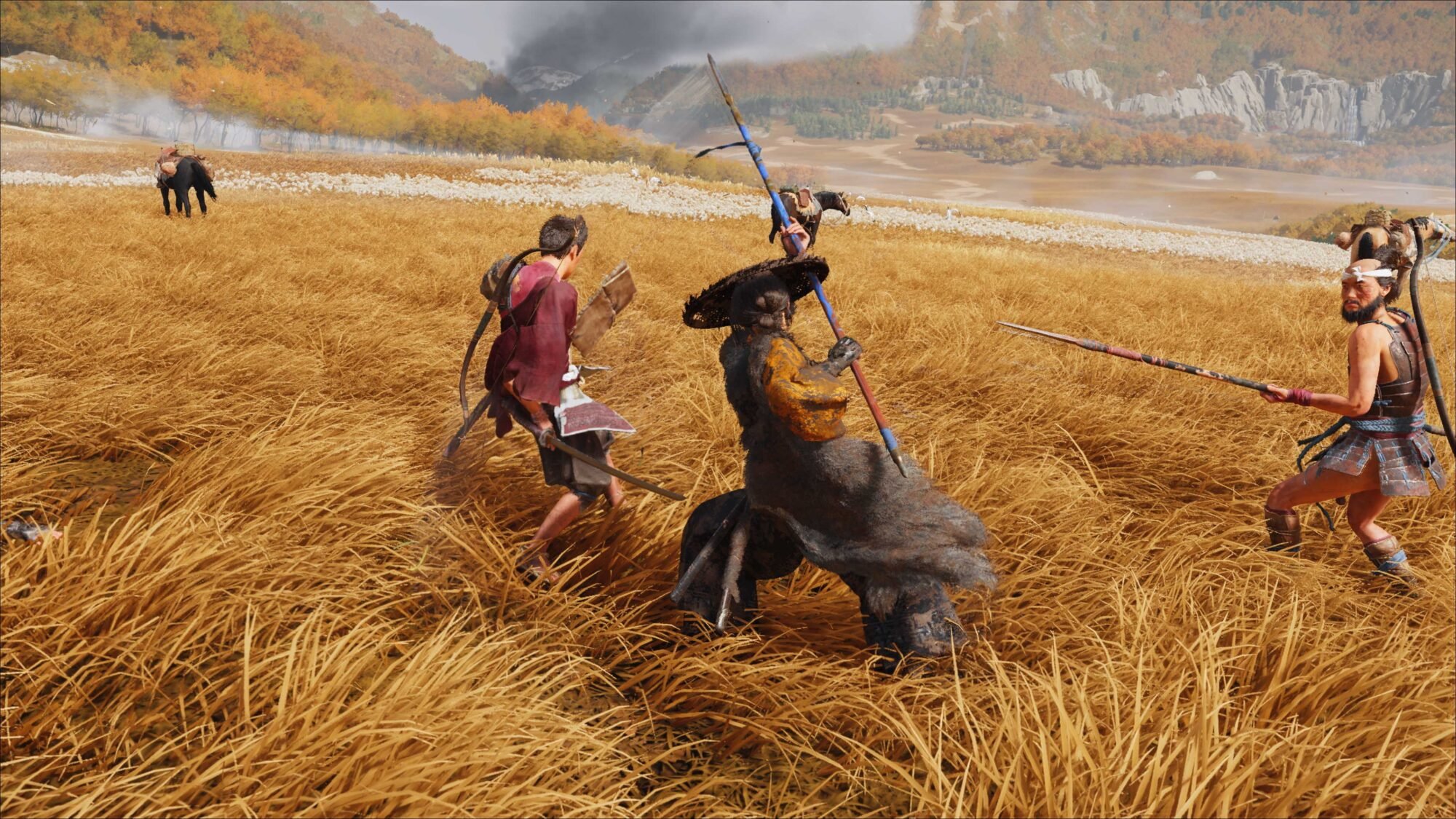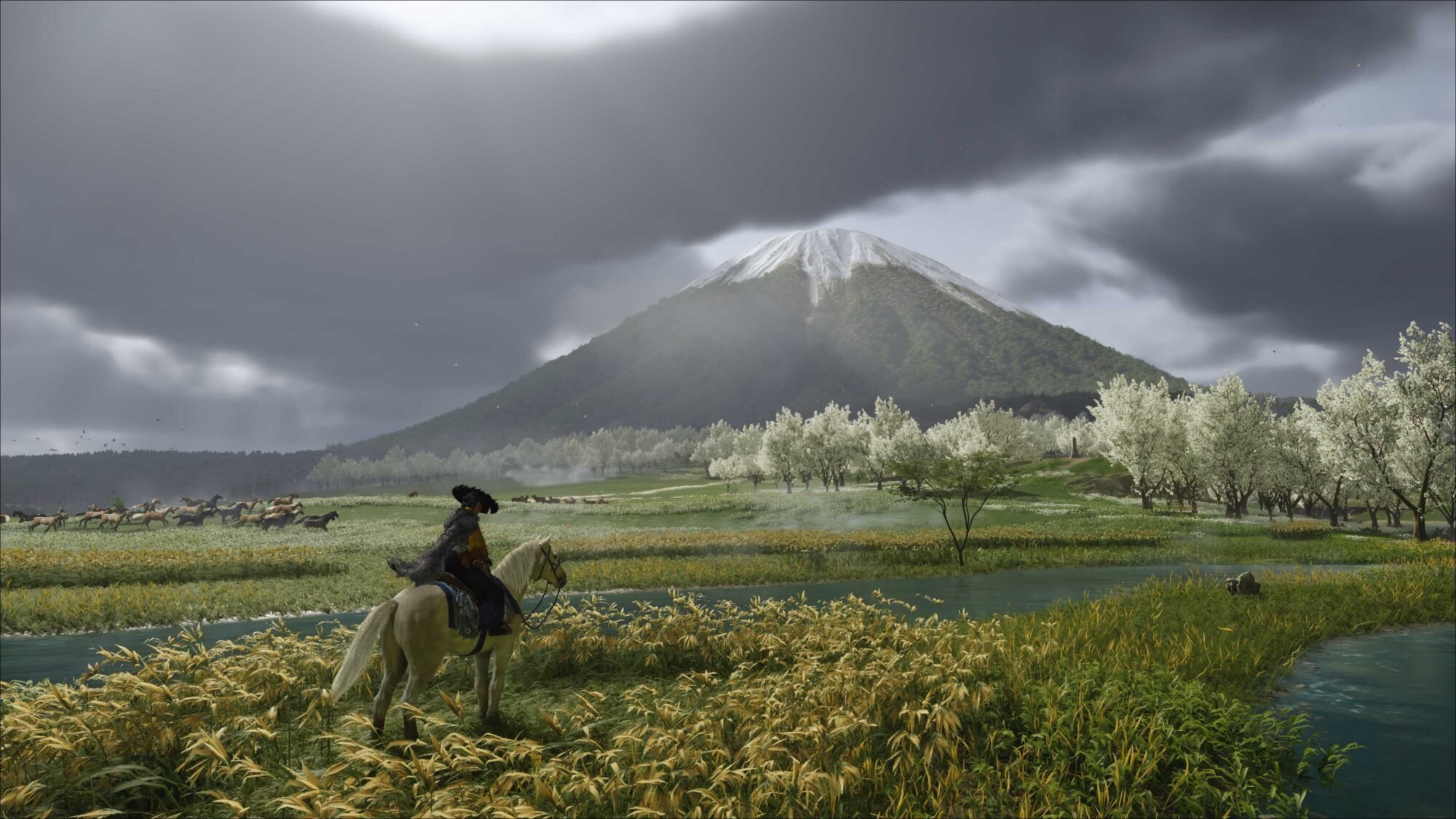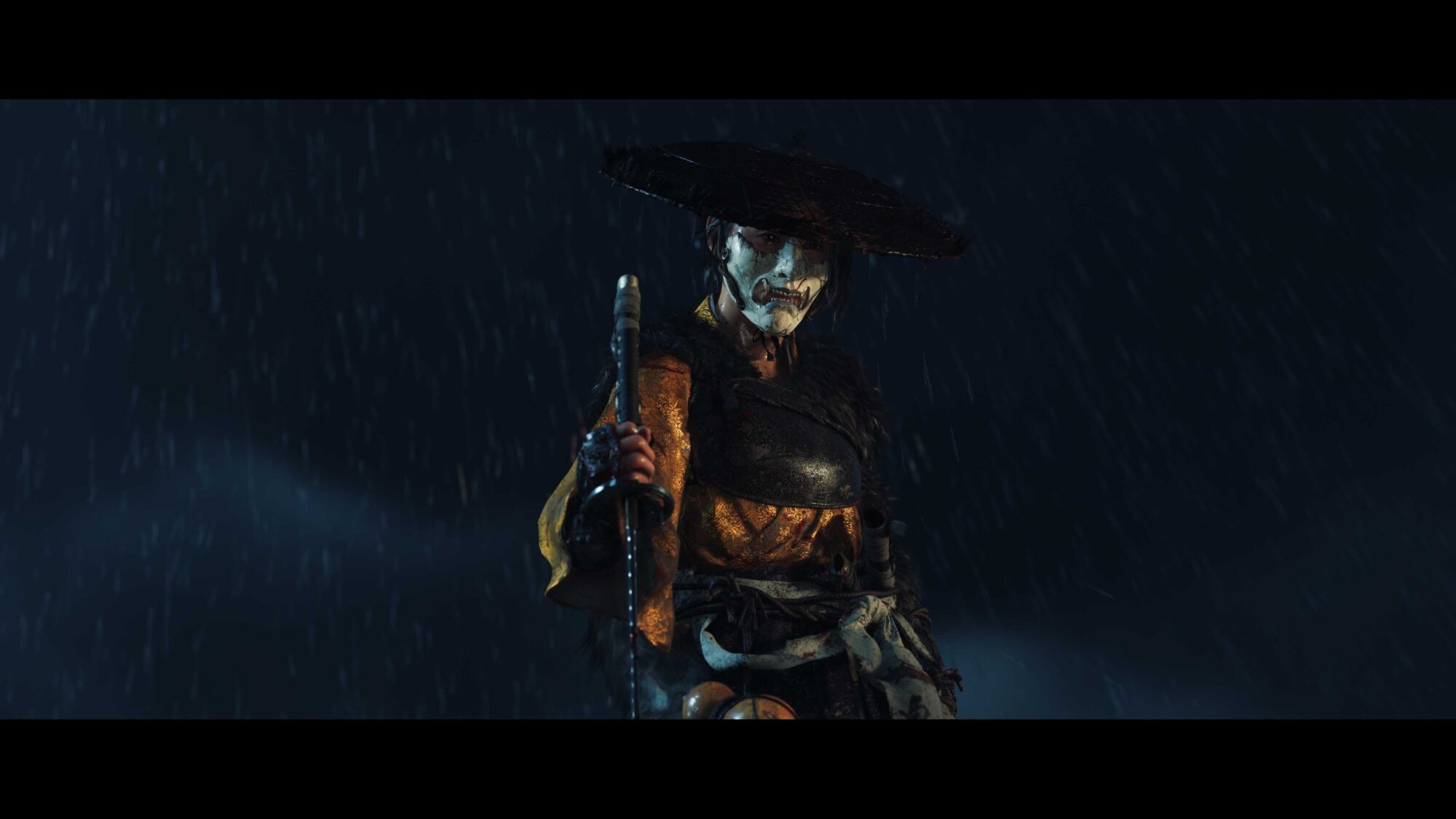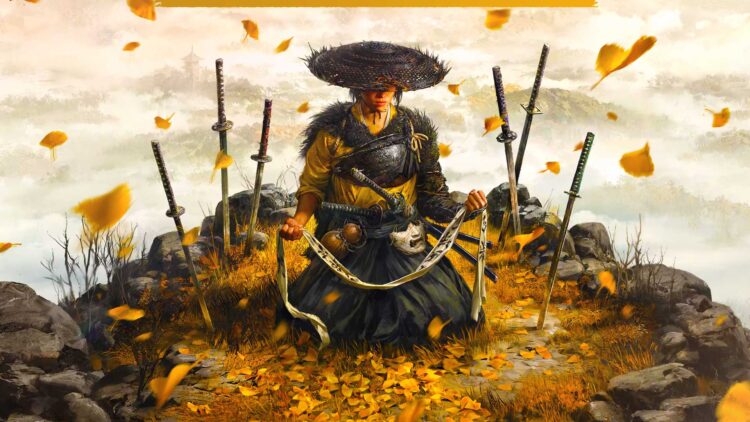When I heard that you didn’t need to be familiar with Ghost of Tsushima to play Ghost of Yōtei, I did a little dance of joy. At that point in time, I only used to be offered Goat Simulator and Farm Simulator at this joint (politics, I know), so I never had the chance to experience the magic of the 2020 Sucker Punch-developed release. Even so, I noticed how immersive and impressive the game looked and read a lot about it, so I hoped that Ghost of Yōtei would follow suit in that regard.
Mission accomplished on that front, because Ghost of Yōtei drops you into the tranquility and majesty of Mount Yōtei in Ezo, making me detest the smog and the non-stop traffic jams of the cesspool known as Johannesburg. Consequently, this experience becomes more about the journey than the final destination, because you want to get lost on horseback in this beautifully recreated world and wander through the fields and forests to explore the flora and fauna (as well as the forbidden secrets of Yōtei).
Composer Toma Otowa adds to the ambience with a poignant score, but Otowa adheres to the same rule that everyone involved in the game does: minimalism. Yes, a lot of effort went into the production of this game, but Ghost of Yōtei utilizes silence, or periods of total calm, to maximum effect here. So when the big events come, you feel it – like a loud bang to the drum.

It’s in the story too. Atsu has vengeance on the mind for Lord Saito and the Yōtei Six, who murdered her family, destroyed her home, and left her for the worms. You’d think it would be an onslaught of violence from beginning to end as Atsu gets her revenge, but that isn’t all that Ghost of Yōtei is about. There are moments of reflection as Atsu reconnects with her past, finds out more about the history of Mount Yōtei from settlers, or even learns new skills from other sensei. It’s these occasions that give you a time to appreciate Atsu as a character and her quest even more – perhaps even coming to understand how this era was brutal on everyone.
When it comes time to fight, though, Ghost of Yōtei rewards those who put in the effort of mastering the combat system. It isn’t a steep learning curve like Kingdom Come: Deliverance II where it often felt like you had to use a clunky tablespoon to block an enemy’s sword. This game forces the basics on you rather quickly before introducing the more intermediate and advanced methods. Yet, it holds your hand throughout the process until you’re comfortable with executing it on the fly. For example: you’re reminded over and over again that it’s best to use a single sword against another opponent using only a single sword, while switching to dual katanas is useful in dealing with spears.
You’re also afforded the opportunity to gain a lot of practice and improve Atsu’s ability, as Ghost of Yōtei doesn’t enforce a linear story structure. You can decide which quest, or side quest, to take, while taking on bounties to sharpen up the fighting skills and gain experience points. Again, there’s no rush here, so look around, feel out the environment, and see where the wind takes you (it actually does take you places, but this is a joke you’ll understand when you play the game).

In terms of criticism, the main issue is that the story isn’t novel. You connect with the emotional part of Atsu’s journey, but every twist and turn in this tale is telegraphed from a mile away. Ghost of Yōtei feels like a story you have heard, watched, or played many times before. Is there really nothing new that Sucker Punch could have included here?
Yet, if you enjoy picturesque revenge-filled action games, then Ghost of Yōtei is for you. It’s one of the best-looking titles of the year, while its immersiveness should keep you playing for a long, long time.
RELATED: Mafia: The Old Country Review – An Old-School Throwback For Better or Worse

The Review
Ghost of Yōtei
Ghost of Yōtei is one big beautiful revenge tale, even if the story isn't new.
PROS
- The open world is beautiful and immersive
- The combat system rewards time and effort
- Atsu is an interesting protagonist
CONS
- This story has been done many times before













